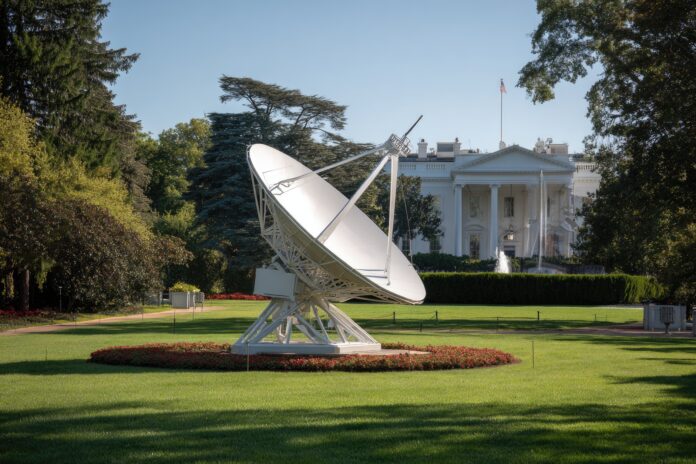Trump and Musk: From Allies to Adversaries—and Back Again?
Once celebrated as a formidable team in tech and politics, President Donald Trump and Elon Musk have recently found themselves at odds. Their feud, which has played out publicly over policy disagreements and inflammatory social media exchanges, has sent shockwaves through Silicon Valley and Capitol Hill alike. Most importantly, the public debate has spurred widespread speculation about whether the White House should sever ties with Musk-backed Starlink. As noted by Bloomberg, the decision to continue using Starlink remains rooted in strategic priorities rather than personal loyalties.
Most notably, the evolving nature of their relationship demonstrates that technology policy can outlast personal discord. The dynamic between Trump and Musk is a reminder that national interest frequently necessitates putting personal differences aside for the public good. Therefore, while headlines continue to highlight their differences, the underlying objective remains securing robust communication channels for the nation.
The Starlink Dilemma: Why Technology Trumps Personal Disputes
Despite the high-profile conflicts, President Trump’s stance is clear: Starlink will stay at the White House. He emphasized that technological efficiency far outweighs individual disagreements. Because reliable communication is a cornerstone of national security, the decision to retain Starlink underscores the broader importance of operational resilience. In his words and actions, it is apparent that when it comes to managing the country’s capital, performance and global positioning are paramount. This sentiment is further reinforced by Bloomberg, highlighting that the strategic necessity of Starlink cannot be compromised by personal conflicts.
Global Stakes: The Geopolitical Impact of Maintaining Starlink
Besides that, Starlink represents more than just a technological asset—it is emerging as a critical tool in international diplomacy. Globally, nations recognize the strategic advantage of a reliable satellite internet service. For instance, several countries have expedited approvals in 2025, including Vietnam and the Democratic Republic of Congo, while South Africa has relaxed regulatory barriers to capitalize on Starlink’s capabilities. As highlighted by Politico, these moves underscore how Washington’s partnerships can wield soft power, further bolstering international relations.
Most importantly, this choice is rooted in national security and technological leadership. With over 7,000 satellites in its constellation, Starlink offers near-global coverage, making it indispensable for secure communications. Therefore, even as emerging competitors like Amazon’s Project Kuiper and Chinese constellation initiatives develop, none are currently positioned to match Starlink’s scale. As a result, the White House’s reliance on this technology is a strategic decision meant to secure uninterrupted national and diplomatic communication.
Bridging the Gap: Balancing Political Optics with National Interest
Because personal grievances often muddy the waters of public discourse, Trump’s decision comes as a welcome shift toward professionalism in policy-making. When questioned about his personal Tesla—a vehicle he purchased in a clear demonstration of support for Musk—he maintained that his commitment to effective technology remains unwavering. Instead of succumbing to personal conflict, he envisioned an operational landscape where national interest prevails over individual disputes. As reported by The Times of India, this pragmatic approach prioritizes the functionality of American governance over headline-driven conflicts.
Furthermore, senior officials from various agencies have reiterated that technology policy does not bend to personal feuds. Their consistent message is that operational security and communication reliability hold the highest priority, especially in today’s fast-paced digital era.
The Road Ahead: U.S. Space and Tech Diplomacy in a Changing World
Looking forward, the interplay between private innovation and national policy is set to shape America’s diplomatic and technological landscape. While the Trump-Musk relationship continues to evolve, the underlying calculus focuses sharply on the merits of robust networking and security. Because technological infrastructure forms the backbone of modern governance, it is most important that decisions align with long-term strategic interests.
Moreover, as interconnected technologies become further imbedded in daily operations and international initiatives, Starlink’s role will likely expand. According to insights from AInvest, the White House’s backing of Starlink is a signal to the international community about America’s commitment to maintaining dominance in digital communications. Therefore, while personal disputes grab media attention, the real story lies in how such technologies bolster national resilience and global diplomacy.
In conclusion, the decision to continue using Starlink embodies a broader vision—a vision that prioritizes national security and operational efficiency over personal matters. Transitioning from public feuds to forward-looking policies, the administration is setting a precedent in leveraging technology to enhance both domestic governance and international relationships.
References
- Politico: The Global Impact of Trump vs. Musk
- Bloomberg: Trump to Keep White House Starlink as Musk Feud Dissipates
- Times of India: Trump-Musk Thaw
- AInvest: White House Backs Tesla Starlink Despite Trump Musk Feud



